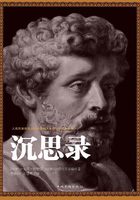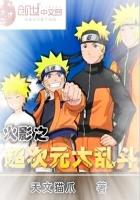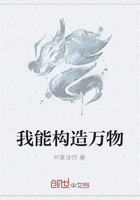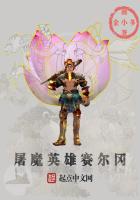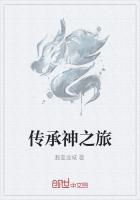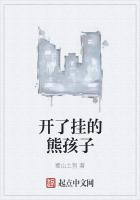rather it is that he has lost what he had before and has not now;but there is no necessity for him to have lost as much or as many things as he has not now.So then,he asks the questions as to what he has,and draws the conclusion as to the whole number that he has:
for ten is a number.If then he had asked to begin with,whether a man no longer having the number of things he once had has lost the whole number,no one would have granted it,but would have said ”Eitherthe whole number or one of them”.Also there is the argument that ”a man may give what he has not got”:for he has not got only one die.
No:rather it is that he has given not what he had not got,but in a manner in which he had not got it,viz.just the one.For the word ”only” does not signify a particular substance or quality or number,but a manner relation,e.g.that it is not coupled with any other.
It is therefore just as if he had asked ”Could a man give what he has not got?” and,on being given the answer ”No”,were to ask if a man could give a thing quickly when he had not got it quickly,and,on this being granted,were to conclude that ”a man could give what he had not got”.It is quite evident that he has not proved his point:
for to ”give quickly” is not to give a thing,but to give in a certain manner; and a man could certainly give a thing in a manner in which he has not got it,e.g.he might have got it with pleasure and give it with pain.
Like these are also all arguments of the following kind:”Could a man strike a blow with a hand which he has not got,or see with an eye which he has not got?” For he has not got only one eye.Some people solve this case,where a man has more than one eye,or more than one of anything else,by saying also that he has only one.Others also solve it as they solve the refutation of the view that ”what a man has,he has received”:for A gave only one vote; and certainly B,they say,has only one vote from A.Others,again,proceed by demolishing straight away the proposition asked,and admitting that it is quite possible to have what one has not received; e.g.to have received sweet wine,but then,owing to its going bad in the course of receipt,to have it sour.But,as was said also above,” all these persons direct their solutions against the man,not against his argument.
For if this were a genuine solution,then,suppose any one to grant the opposite,he could find no solution,just as happens in other cases; e.g.suppose the true solution to be ”So—and—so is partly true and partly not”,then,if the answerer grants the expression without any qualification,the sophist”s conclusion follows.If,on the other hand,the conclusion does not follow,then that could not be the true solution:and what we say in regard to the foregoing examples is that,even if all the sophist”s premisses be granted,still noproof is effected.
Moreover,the following too belong to this group of arguments.”If something be in writing did some one write it?”Yes.”But it is now in writing that you are seated—a false statement,though it was true at the time when it was written:therefore the statement that was written is at the same time false and true.” But this is fallacious,for the falsity or truth of a statement or opinion indicates not a substance but a quality:for the same account applies to the case of an opinion as well.Again,”Is what a learner learns what he learns?”Yes.”But suppose some one learns "slow" quick”.Then his (the sophist”s) words denote not what the learner learns but how he learns it.Also,”Does a man tread upon what he walks through?
”Yes.”But X walks through a whole day.” No,rather the words denote not what he walks through,but when he walks; just as when any one uses the words ”to drink the cup” he denotes not what he drinks,but the vessel out of which he drinks.Also,”Is it either by learning or by discovery that a man knows what he knows?”Yes.”
”But suppose that of a pair of things he has discovered one andlearned the other,the pair is not known to him by either method.” No:
”what” he knows,means” every single thing” he knows,individually;but this does not mean ”all the things” he knows,collectively.Again,there is the proof that there is a ”third man” distinct from Man and from individual men.But that is a fallacy,for ”Man”,and indeed every general predicate,denotes not an individual substance,but a particular quality,or the being related to something in a particular manner,or something of that sort.Likewise also in the case of ”Coriscus” and ”Coriscus the musician” there is the problem,Are they the same or different?” For the one denotes an individual substance and the other a quality,so that it cannot be isolated;though it is not the isolation which creates the ”third man”,but the admission that it is an individual substance.For ”Man” cannot be an individual substance,as Callias is.Nor is the case improved one whit even if one were to call the clement he has isolated not an individual substance but a quality:for there will still be the one beside the many,just as ”Man” was.It is evident then that one must not grant that what is a common predicate applying to a class universally is an individual substance,but must say that denotes either a quality,or a relation,or a quantity,or something of that kind.It is a general rule in dealing with arguments that depend on language that the solution always follows the opposite of the point on which the argument turns:e.g.if the argument depends upon combination,then the solution consists in division; if upon division,then in combination.Again,if it depends on an acute accent,thesolution is a grave accent; if on a grave accent,it is an acute.Ifit depends on ambiguity,one can solve it by using the oppositeterm; e.g.if you find yourself calling something inanimate,despiteyour previous denial that it was so,show in what sense it is alive:
if,on the other hand,one has declared it to be inanimate and thesophist has proved it to be animate,say how it is inanimate.Likewisealso in a case of amphiboly.If the argument depends on likeness ofexpression,the opposite will be the solution.”Could a man givewhat he has not got?”No,not what he has not got; but he could giveit in a way in which he has not got it,e.g.one die by itself.”




